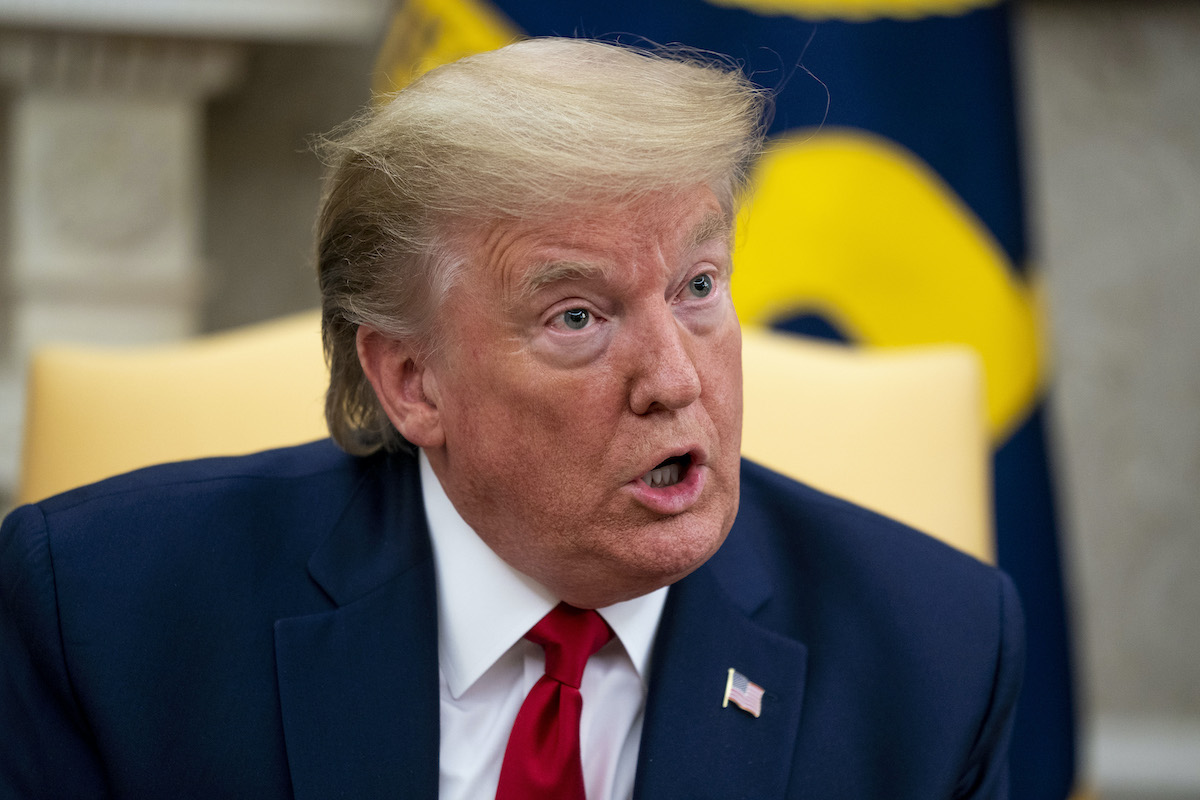When Donald Trump used his press briefing platform last month to muse about the potential effectiveness of disinfectants, bleach, and light as coronavirus treatments, it was a shocking moment—one of those moments that reminds us it is still possible for Trump to say things that can shock us, that there are new lows left for him to hit.
It was hard to watch not just because we have a president who seemed to genuinely believe (no one bought his excuse that he was being sarcastic) that injecting bleach might be a good medical treatment, but because we knew there would be people out there who would listen to him.
The previous month, when Trump began pushing the drug hydroxychloroquine as a potential treatment, at least one couple in Arizona ingested chloroquine phosphate—an additive in aquarium cleaners. A ton of rightwing media figures were quick to defend Trump against accusations that he was at least partly responsible for the poisoning, which left a man dead and his wife in the ICU. They said it was the couple’s fault for misunderstanding Trump’s comments and that no one else could possibly think drinking straight disinfectant would be a good idea.
But now we can see that there are a lot of other people who susceptible to Trump’s dangerous advice. Around the time that he made his comments about disinfectant, the American Association of Poison Control Centers reported a huge spike in accidental poisonings from bleach and disinfectants—more than double the number of cases reported in previous months.
In January, February and March of 2020, accidental poisonings with household disinfectants were up 5%, 17% and 93% respectively over the same months in 2019. In April, which includes an eight day period from the 23rd of the month to the 30th, following Trump’s comments, the increase was 121% compared to April of 2019. In the first ten days of May, things settled down some, with poisonings up 69% over the same 10-day period in 2019.
Now, there are a few things to note. First, we don’t know the cause of these accidental poisonings. People are probably cleaning a lot more than usual right now and they’re stuck at home, where poisonings are likely to occur. Maybe many of them are not deliberately ingesting these products in the ways Trump alluded to. We can’t know for sure.
Also, the first big spike in poisonings happened in March, before Trump made his disinfectant comments (but after/around his chloroquine comments). So Trump’s April 23rd press briefing can’t be to blame for that spike. Although it’s not like Trump pulled the bleach idea out of thin air.
In the days before that briefing, Trump was reportedly contacted by the leader of a group pushing chlorine dioxide—a powerful industrial bleach—as a “miracle cure” for COVID-19. The idea to use chlorine dioxide and other disinfectants as a coronavirus treatment had been circulating in conspiracy theory groups for months, including the pro-Trump QAnon, whose memes and other propaganda has frequently made its way to Trump’s ears (as well as his Twitter).
So was Trump just one of many people duped into believing these fringe conspiracy theory claims? Or was he the one responsible for convincing thousands of people to poison themselves? Was it both? If he didn’t come up with the idea, he sure amplified it.
Either way, the fact remains the same: No one should be drinking disinfectant, no matter what the internet or the president tells you.
(via TIME, image: Doug Mills-Pool/Getty Images)
Want more stories like this? Become a subscriber and support the site!
—The Mary Sue has a strict comment policy that forbids, but is not limited to, personal insults toward anyone, hate speech, and trolling.—










Published: May 13, 2020 01:35 pm